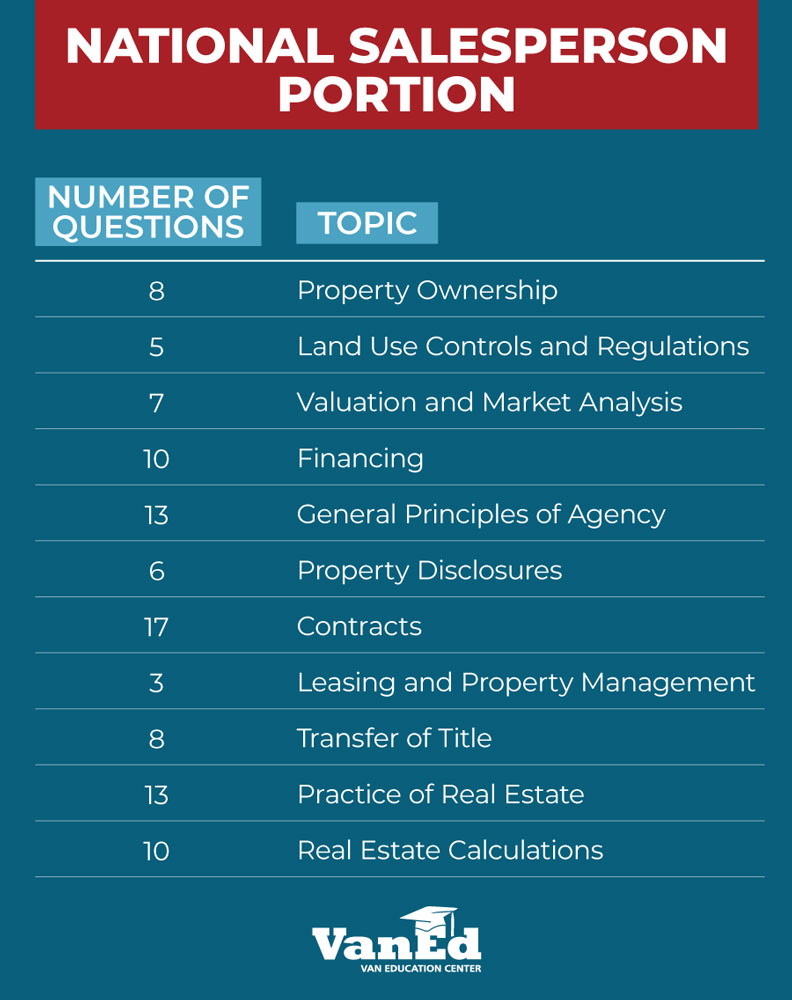
Before you can work as a real estate agent, you will need to have a California licensed real estate license. There are a few things you need to do, including sending in a fingerprint sheet to the Bureau of Real Estate. Next, you'll need to go to school that offers real property training.
California Real Estate License Courses
Pre-licensing courses are the first step to obtaining a California real estate license. These courses should only be taken by accredited colleges or universities. The Department of Real Estate keeps a list of accredited institutions. Alternatively, you can take classes online. However, you should be aware of the time and money requirements.
The state's Department of Real Estate must approve the courses you take. AceableAgent is an accredited online school for real estate in California. The courses are constantly updated and are sometimes available at a discounted rate. Unfortunately, many students find the course materials difficult to read and can take a lot of time to absorb the information.

Exam pass rate
There are many ways to prepare for the real-estate license exam. Choosing the right program is vital to your success. You should ensure that you are enrolled in the best program. The program should include practice tests, quizzes, and exam preparation. Some programs include audio and/or video training.
Some schools in real estate have high pass rates. CE Shop boasts 91% pass rates. Their courses are always up to date with the latest information. Many courses are also available at a discount. But, it is worth noting that the course materials might be difficult to comprehend. Students often find the course material difficult to understand.
Pre-licensing requirements
Completing a pre-licensing program is the first step in getting a California realty license. There are many online courses that can help you prepare for the real exam. A good prep course will also include additional study resources and provide real-world scenarios.
California requires you complete at minimum one pre-licensing program and 135 hours associated coursework. You can find out exactly how many hours of training are required at the California Department of Real Estate's website.

School requirements
California requires that students complete at least one year in education before they can obtain a real estate license. A minimum of two core courses must be completed, totaling 135 hours. Real Estate Principles covers real estate ethics and law. The second course covers financing, contracts, and escrow procedures. Students must also complete a listing course.
Students must also take core courses. A background check involves a live scan of criminal records. A license may be denied if a student fails to disclose any criminal history. The state exam is difficult. However, many schools offer extra resources for students in preparation for the exam.
FAQ
What should I look for in a mortgage broker?
A mortgage broker helps people who don't qualify for traditional mortgages. They shop around for the best deal and compare rates from various lenders. There are some brokers that charge a fee to provide this service. Others provide free services.
How can I fix my roof
Roofs can leak due to age, wear, improper maintenance, or weather issues. Minor repairs and replacements can be done by roofing contractors. Get in touch with us to learn more.
How long does it take for my house to be sold?
It all depends on several factors such as the condition of your house, the number and availability of comparable homes for sale in your area, the demand for your type of home, local housing market conditions, and so forth. It can take anywhere from 7 to 90 days, depending on the factors.
Can I afford a downpayment to buy a house?
Yes! There are programs available that allow people who don't have large amounts of cash to purchase a home. These programs include FHA loans, VA loans. USDA loans and conventional mortgages. More information is available on our website.
Statistics
- It's possible to get approved for an FHA loan with a credit score as low as 580 and a down payment of 3.5% or a credit score as low as 500 and a 10% down payment.5 Specialty mortgage loans are loans that don't fit into the conventional or FHA loan categories. (investopedia.com)
- 10 years ago, homeownership was nearly 70%. (fortunebuilders.com)
- When it came to buying a home in 2015, experts predicted that mortgage rates would surpass five percent, yet interest rates remained below four percent. (fortunebuilders.com)
- This means that all of your housing-related expenses each month do not exceed 43% of your monthly income. (fortunebuilders.com)
- Private mortgage insurance may be required for conventional loans when the borrower puts less than 20% down.4 FHA loans are mortgage loans issued by private lenders and backed by the federal government. (investopedia.com)
External Links
How To
How to find an apartment?
The first step in moving to a new location is to find an apartment. This involves planning and research. This involves researching and planning for the best neighborhood. Although there are many ways to do it, some are easier than others. Before you rent an apartment, consider these steps.
-
Online and offline data are both required for researching neighborhoods. Websites such as Yelp. Zillow. Trulia.com and Realtor.com are some examples of online resources. Online sources include local newspapers and real estate agents as well as landlords and friends.
-
See reviews about the place you are interested in moving to. Yelp. TripAdvisor. Amazon.com have detailed reviews about houses and apartments. Local newspaper articles can be found in the library.
-
Call the local residents to find out more about the area. Talk to those who have lived there. Ask them what they loved and disliked about the area. Ask if they have any suggestions for great places to live.
-
Check out the rent prices for the areas that interest you. Renting somewhere less expensive is a good option if you expect to spend most of your money eating out. If you are looking to spend a lot on entertainment, then consider moving to a more expensive area.
-
Find out about the apartment complex you'd like to move in. For example, how big is it? How much is it worth? Is the facility pet-friendly? What amenities does it have? Are you able to park in the vicinity? Are there any special rules that apply to tenants?